#Laura Mulvey
Explore tagged Tumblr posts
Text
GELBOYS HAPPY ENDING REVISITED
Happy to see people re-assessing blanket approval for Directors Boss’ consistent blind spots in his latest production in the clearer, more considered light of day. I don’t think any distortions credited to him are the fault of romance genre, as BL is on record as blazing Transformative new trails in this respect.
I do agree with the as yet not fully-formed green shoots of analysis suggesting this has more to do with capitalism and how ships have to be commodified and profited from later. This is what distorts the ending in capitalist BL producing countries. This ignored factor, not the pair system, is how the real potential of BL gets wasted because emotionally contented, satiated, and fulfilled people don’t exhibit the same spending patterns in the libidinal economy.

However, in terms of romance tropes in storytelling, the whole history of BL emerges because women looked at the problems of intimate relations with men - which are primarily emotional and sexual violations, and from there, something people called toxic but sensible people recognise as women’s everyday reality, they work through a process of visionary imagination with those male characters until they become something suitable for a romantic relationship that they’d like to experience in media. They don’t become perfect men at the end but there is a sense of having re-gained the skills and aptitudes that have beaten out of boys over the course of boyhood that prevents their gender disproportionately from accessing the resources generative of the intimacy(which is not sex) they crave as adults.

There are so many times when we see an adaptation of a BL in Thailand where fans of the original source material say “it was better in the book”. Why? Mostly because the OG women (and a growing minority of men who wanted to challenge and transform “gay reality”) writing it spent a disproportionate amount of time dealing with the emotional interiority of the characters and the Process by which they come to recognise what they’re doing and to Struggle to Change it, or at least be on a path where they’re in full comprehension of what needs to change. In the drive for views this priority often gives way to superficial aesthetics, and or hot visuals, pushing out emotional depth as well as basic storytelling logics.

Furthermore, sometimes when male directors take up the stories, it’s obvious that too often restitution and reparation is not something they personally believe in and they’re not as obsessed with or even minimally invested in moving away from the desirability norms (dominance, hierarchy, valuing of the physical over the emotional; devaluing of femininity) pedestalised by other men in the community or in the wider society, which is the audience they appear to be writing for (not viewers who deliberately eschew mainstream gay media precisely because they’re dissatisfied and want to experience something different).

In reality these things do get accommodated in male dating circles so in most ways Director Boss is indeed accurately depicting what happens in the community in real life but in BL when critics say it’s not based in reality this is really a way to dismiss and reject the often painful character growth that men tend to go through in the original BL source material, that constitutes the departure of BL from mainstream queer media. In that sense, the fact BL doesn’t totally reflect gay reality - in the absolute and elaborate centering of Conflict Resolution elements of the storytelling, is the point!
Women invented this genre not simply to reflect reality, which it does, but primarily to Transcend it. To be clear some writers do this visioning better than others but the universal objective is not to remain within our current social reality but to CONTEST it. The contestation is articulating the heartfelt cry that - as lovers, mothers, sisters and friends of men, if we continue having gender relations as we do now, there is no future for humanity. We only have to look at several Asian countries that are producing BL to see the catastrophic state of gender relations is such that women are restricting interacting with men for friendship, dates, having children or for marriage. This is urgent because status quo threatens the whole of society.
This is happening in the west as well and not only among women but what queer men are going through in their relationships with other men has been given far less social concern. Just listen to the despair of ciz men and trans people talk about their experiences every weekend after Grindr hookups. They too are disillusioned but it is women who are still at the front of passionate initiatives (movements for men and boys’ socialisation are constantly pleading for more men to join as mentors and guides) to elaborate what kinds of radically different relationships we can have with men - as women and girls or as men and boys, not how can we navigate emotional and physical abuse in order to still find a way to be together with our unreconstructed abusers.

Now there are examples of Thai BL creators who have worked through queer intimacy challenges well (Dir New comes to mind as a king of this until his regrettable GMM era), it is not as though they do not exist despite the fact that there are fewer and fewer between in the post Cvd years. However there are undeniable reasons the data would point to, that are responsible for this divergence: the financial needs of the investors behind productions are being prioritised in the storytelling, not the HUMAN NEEDS of those typically interested in consuming it. This is where the reactionary and ultimately disappointing narratives are being inserted -because in the dominant culture they are “sexier”.
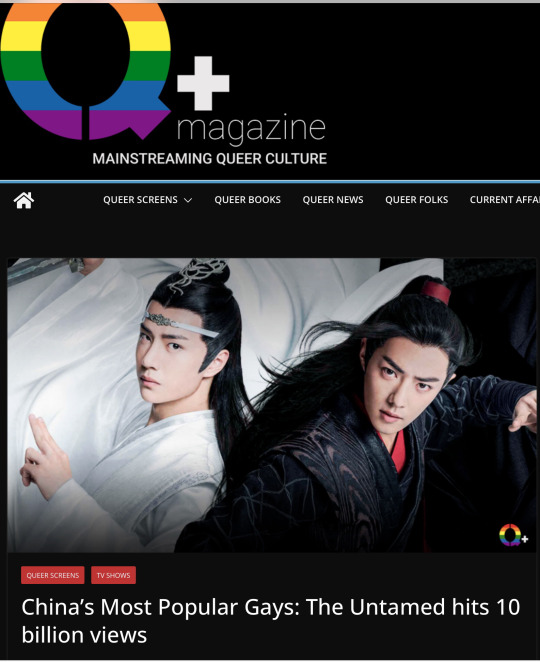
Look at the most popular BL adaptation in the world which is a Danmei adaptation. Dangai adaptations that emerge from Danmei, despite censorship - why are these the biggest, most loved and most rewatched, even driving their source material to be the most sought after BLs novels on the planet? I suggest it is because whether they are explicit or not, from Addicted to The Untamed, the characters in question go through a lengthy period of personal growth and in that personal growth they move further and further away from hegemonic masculinity (I think this is the point we miss with this brain-dead, illiterate campaign that comparing countries is to be forbidden). This openness of the male characters to change does more to undermine resistance to the dominant social construction of masculinity and male sexuality, than essentialist fables in our culture that all kinds of men internalise to their disadvantage.
This secret ingredient is called the Female Gaze. In its execution, it transforms both the nature of the couple’s relationship with and between themselves And Their Relationships With Others. The resolution is something that can change society rather than only themselves as individuals.
The female gaze is not something women do but a Form of Politics that can be adopted regardless of sex. The female gaze is why even when a Dangai doesn’t end with the main characters in the same frame, their journey to love as a couple fills the viewer with hope and a TRANSFORMATIVE mental attitude that can persist years later. Trapped is an example of a Dangai that even though adapted in a capitalist environment still actively resisted dominant romance storytelling norms in many ways; their CP is still marketable years later.
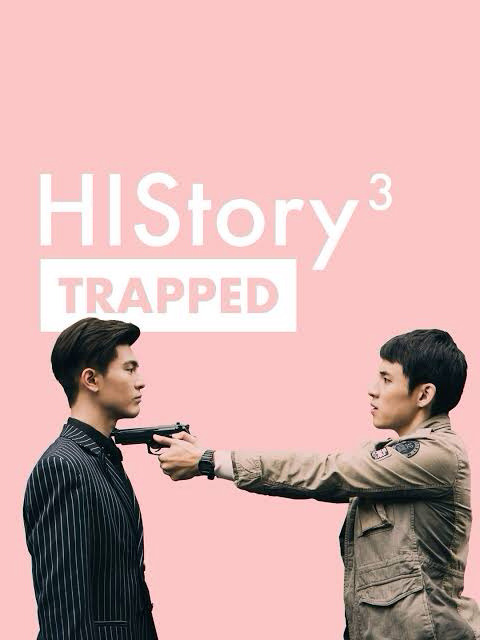
What frustrates us so much about the adaptations from some BL producing environments is that as time has gone on we are seeing the move further and further away from the political philosophy of BL while the values of the dominant culture, yes including the damaging values that exist in vulnerable subcultures, have come to supplant the more revolutionary potentials of BL. Meanwhile in China even the government is begging creators to re-impose hegemonic, Male-Gaze aesthetics and behaviours such as Thailand is increasingly doing without any laws forcing them to make CPs almost exclusively reflect hyper-masculine norms. As a result these compromised, self censored BLs from countries Without Acknowledged Censorship are more reflecting and tolerant of, and hence less challenging to, the societal status quo.
Older TBL for instance was largely among those to be experienced as a distinct Queer Reservoir of Optimism but today instead of challenging hierarchies and hegemony we are by and large, left with accepting, valuing and “giving grace” to inherently destructive ways of being - just as they are. I think that is the principal disconnect and despite such seeming high potential the ending of GelBoys proved to be as much a let-down as the general TBL trajectory. To live up to its transformative potential to viewers a BL must be Counter-Hegemonic in resisting even its own dominant cultures and sub-cultures.

Culture is a product of society. Transgressive cultural outputs must by definition reflect the comparative cultures but also Be in Active Resistance to the Culturally Normative, not simply acquiesce to it, in order for it to be beneficial to viewers’ bottom line and not just to corporate sponsors.
#gelboys the series#gelboys#Thai bl#Chinese bl#Danmei#Dangai#killer and healer#history3 trapped#capitalism and bl#the untamed#Mo Dao Zu Shi#research on queer men’s emotional lives#bell hooks#the female gaze#female gaze in bl#oppositional gaze#Laura mulvey
10 notes
·
View notes
Note
Hotd is the trenches of white feminism because why else is it that most of the time when I see someone who actually understands why trying to change it to a story where both sides are wrong is actually both irresponsible and impossible, they so often turn out to be a bipoc woman? Why are we the ones out here having to defend white women and even the men around them from other white women who so often claim to be feminists and why is this also true in real life? I'm tired.
When the ASoIaF fandom itself is entrenched in white feminism with no real public acknoledgement of how/why people got the conclusions they did bc everyone wants to avoid being honest and just be either sexist/racist OR deny such things motivating some of the writers' decisions or other fans' feelings abt such and such...
the next fandom for the next TV/film adaptation will inevitably follow. And worse bc HotD is the hub of male gaze and misogynoir-baked-into-the-writing that reinforces it all.
I have had to explain how male gaze is different from "female gaze", how it has always been about trying to make subordinate a woman's true perspective AND agency for male-viewer excitement and confidence. To make the female subject no longer subject or actor as the male. How it constructs a pleasure in seeing female subjects subordinated, that that is its inherent purpose and function.
ANOTHER LINK
Not about "who is hot", or "looking with disrespect", or "what makes men attracted to women" like female gaze is supposed to be about "what makes women attracted to men" or gets them hyped or whatever. This, what I just described people have done/said about male gaze vs female gaze, is a complete misunderstanding AND attempt to redefine what male gaze is/what it has always really been about to distort the unnatural desire to see female objectification as "natural".
Something that neoliberal capitalism has tricked many people, inclu women, into believing like it has tricked girls into thinking sex work isn't as dangerous and "a big deal" bc you're making money being a commercial product of a patriarchal society.
I will repeat: male gaze, as a theory/application/criticism/observation of patriarchy in film/media was about how & why women are agency-less/mitigated objects for the male-centered or male-as-the-actor/subject story.
In the male gaze, the "woman" is not "the maker of meaning", but the "bearer of meaning".
And Laura Mulvey was a white, "mid" class woman...and other white women can't even get this shit in their fucking brains for more than three seconds.
I, too, am tired.
Now, of course we can understand how both sides went into a war that ravaged an entire realm in under 3 years. how it lead to the end of dragons before Daenerys. How we can seem to chalk it up to noble people being typically selfish nobles...however, what makes this unique is the fact that it could have been entirely prevented if sexism itself did not exist. That Rhaenyra was a woman mattered and defined the entire trajectory of the greens' moves & motivations & confidence into usurping her in the first place. This is just basic fact. Not even Maegor's war w/his own nephew (Aegon the Uncrowned) was this devastating!
(LINK#1 & LINK#2, both by zaldrizer-sovesi) The Blackfyres came from xenophobic, [likely] ableist, desires for self-aggrandizement and have a lot to do with ideas of masculinity and power: bastard given a ruler's sword by the past one vs nonmilitant legitimate ruler who invites the "Other" into his court--using such things already in the society for one's one advancement. If we can acknowledge that, why can't we acknowledge the same for Rhaenyra/the Dance and sexism?!
Why do we need to subordinate that under "both sides bad", instead of the other way around? Again, Condal and many HotD "neutrals" have argued that "both sides bad" is the "point" of the war...which, it it actually were, then what is the goddamn point of it if it can be subsumed under "oridinary" nobles' wars?!! What is the point of the Dance or even adapting it at all? bfr!
#asoiaf asks to me#hotd fandom#fandom critical#white feminism#hotd male gaze#male gaze#feminism#laura mulvey#hotd crtical#hotd comment#hotd#asoiaf#asoiaf fandom
13 notes
·
View notes
Text
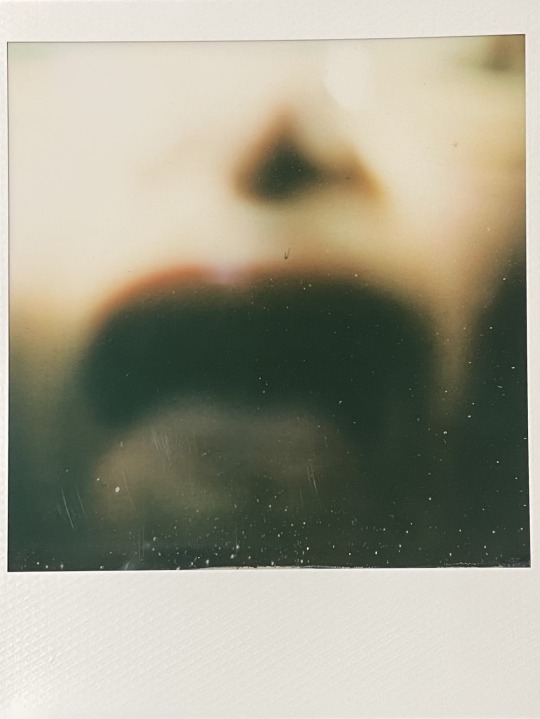
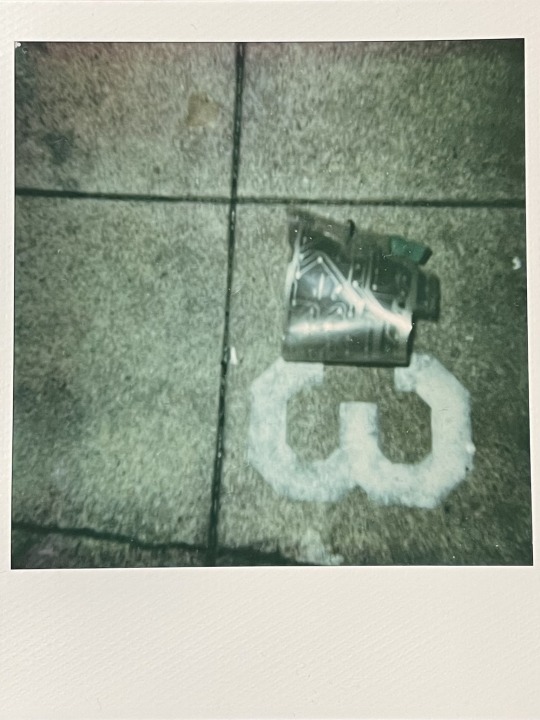
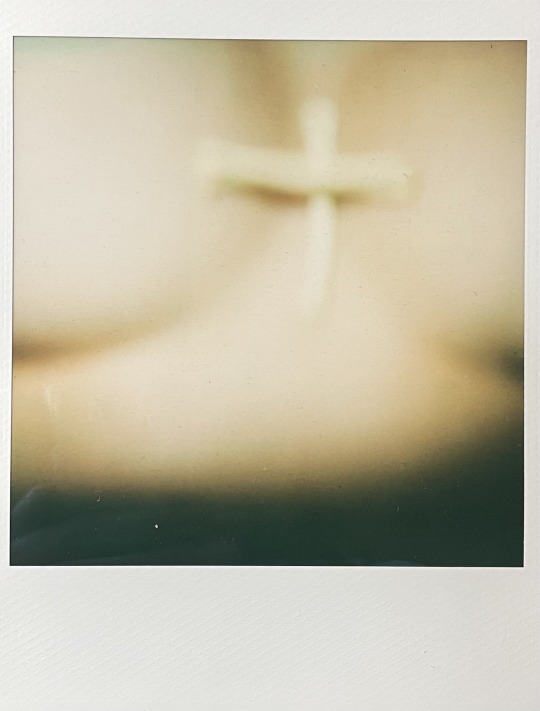



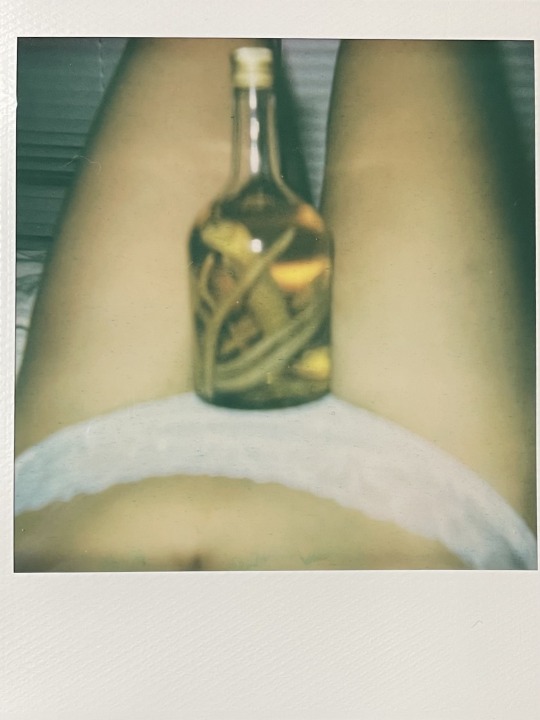

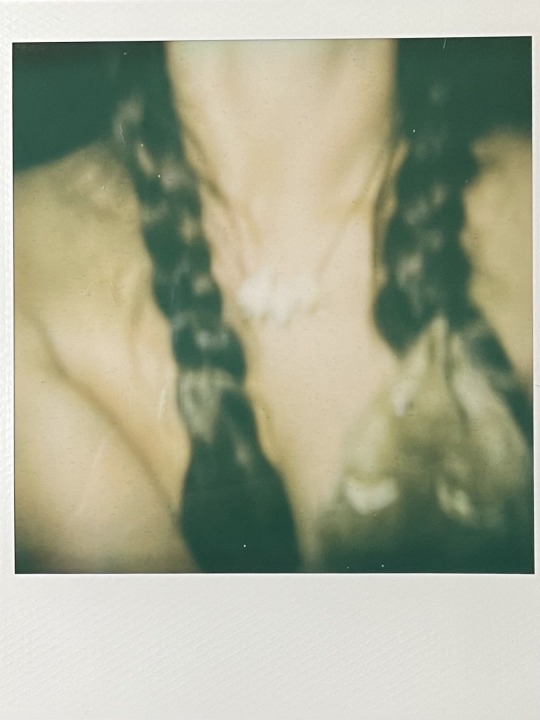
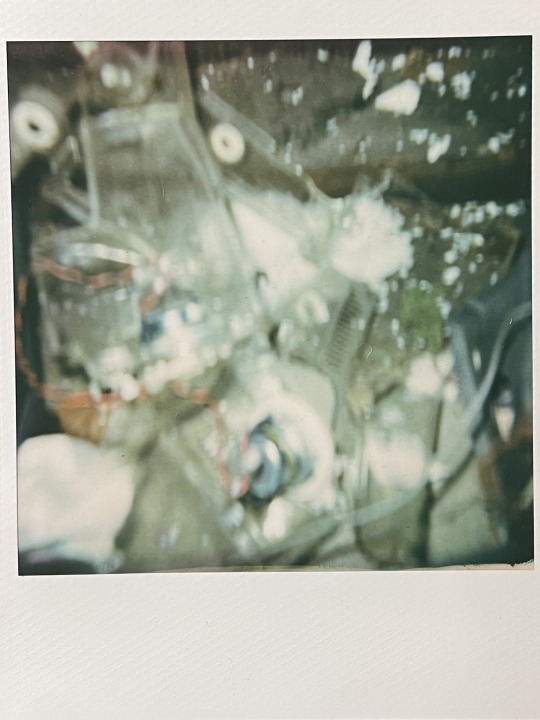
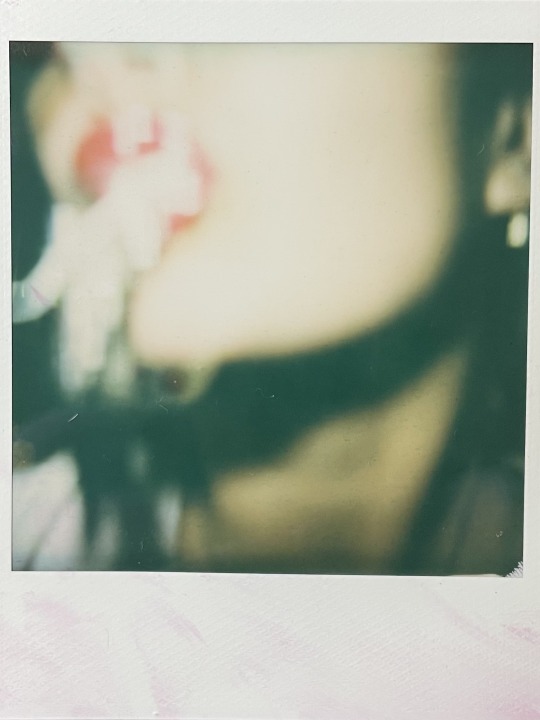

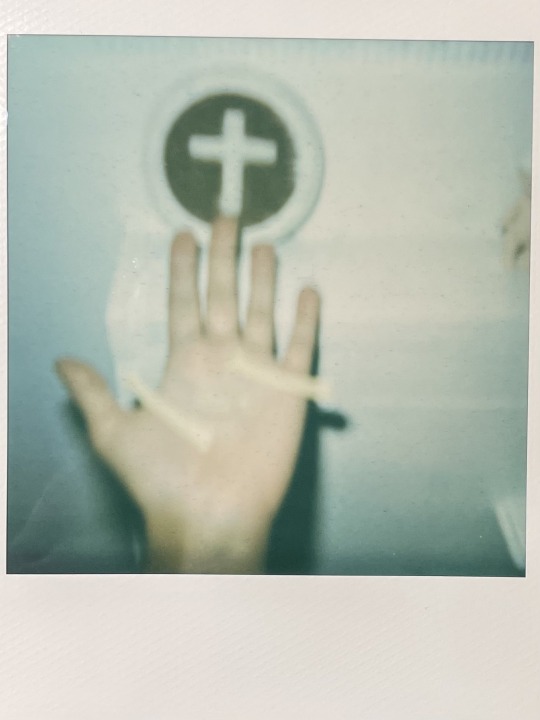

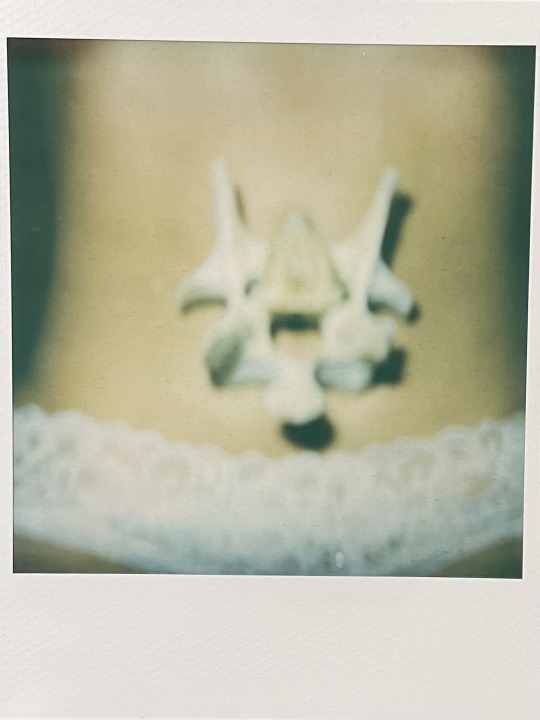
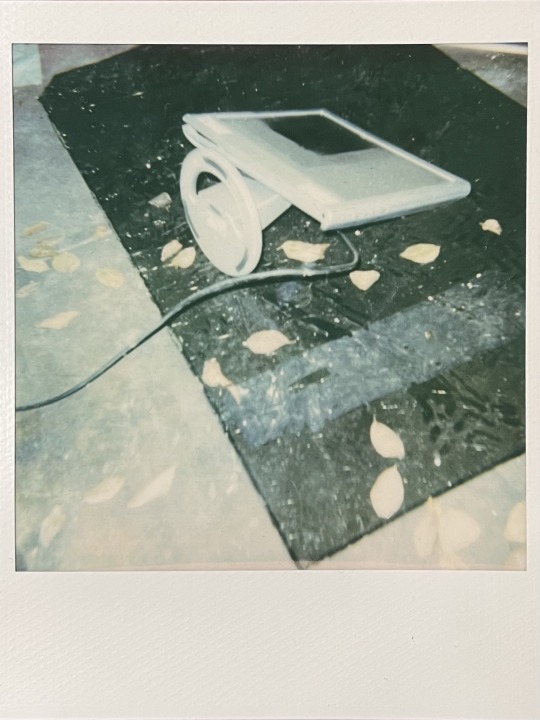
FDW, 2024
5 notes
·
View notes
Text
It's incredible to me how often people's idea of "the female gaze" on Tumblr boils down to "I'm a woman, and when this man takes his shirt off its hot to me, so therefore it only exists on film for people like me."
It's especially egregious when people do this with characters like Lestat in AMC's Interview with the Vampire, who is not only himself bisexual but in a relationship with a man, who is usually the person he is undressed for!
Part of the problem is that people are talking about the cinematic gaze without any clear sense of what that actually means. It's never just about the sexuality of the character onscreen or of individual people who are looking at them. Laura Mulvey used "the male gaze" to describe how the framing of women's bodies in cinema mirrors the way women's bodies are framed in culture (i.e. as passive objects for male consumption.) Her essay "Visual Pleasure and Narrative Cinema" is 49 years old now, so the idea of the gaze has undergone much evolution, but there is no need to insist that female gaze be both reductive and heterosexist.
20 notes
·
View notes
Text
Some important notes (because this is my area of expertise), Laura Mulvey (who wrote Visual Pleasure and Narrative Cinema) is using the language of Freudian psychoanalysis in order to make her points because it was a predominant way of analysing films, done primarly by men and would almost always lead to a sexist reading of a film. This does mean that it doesn’t take into account certain other intersectional modes of existing, but there are a number of follow up texts (by Mulvey and other scholars) trying to address those gaps. It is arguably one of *the* most important texts in film theory.
Similarly, Barthes’ text (Death of the Author) doesn’t really account for the idea that an author might do something intentionally, and considers the author ‘unconscious’. There are however, a lot of texts that take the idea of author further, especially that of Michel Foucault who developed the concept of an ‘author function’. Simply put, what/who we consider to be the author of a text will influence how we read (understand) a text. If you know that you’re watching a film which is directed by a famous director, you might be more likely to notice what a director may have influenced in that film.
male gaze is not ‘when person look sexy’ or ‘when misogynist make film’
death of the author is not ‘miku wrote this’
I don’t think you have to read either essay to grasp the basic concepts
death of the author means that once a work is complete, what the author believes it to mean is irrelevant to critical analysis of what’s in the text. it means when analysing the meaning of a text you prioritise reader interpretation above author intention, and that an interpretation can hold valid meaning even if it’s utterly unintentional on the part of the person who created the thing. it doesn’t mean ‘i can ignore that the person who made this is a bigot’ - it may in fact often mean ‘this piece of art holds a lot of bigoted meanings that the author probably wasn’t intentionally trying to convey but did anyway, and it’s worth addressing that on its own terms regardless of whether the author recognises it’s there.’ it’s important to understand because most artists are not consciously and vocally aware of all the possible meanings of their art, and because art is communal and interpretive. and because what somebody thinks they mean, what you think somebody means, and what a text is saying to you are three entirely different things and it’s important to be able to tell the difference.
male gaze is a cinematographic theory on how films construct subjectivity (ie who you identify with and who you look at). it argues that film language assumes that the watcher is a (cis straight white hegemonically normative) man, and treats men as relatable subjects and women as unknowable objects - men as people with interior lives and women as things to be looked at or interacted with but not related to. this includes sexual objectification and voyeurism, but it doesn’t mean ‘finding a lady sexy’ or ‘looking with a sexual lens’, it means the ways in which visual languages strip women of interiority and encourage us to understand only men as relatable people. it’s important to understand this because not all related gaze theories are sexual in nature and if you can’t get a grip on male gaze beyond ‘sexual imagery’, you’re really going to struggle with concepts of white or abled or cis subjectivities.
#I actually get to talk about these things#because they're what I've studied#this also isn't to correct the op or anyone else commenting on this thread#I'm just talking about the things I find interesting#laura mulvey#roland barthes
91K notes
·
View notes
Text
It is said that analysing pleasure, or beauty, destroys it. That is the intention of this article.
- from "Visual Pleasure in Narrative Cinema," Laura Mulvey (x)
4 notes
·
View notes
Text
Male gaze🚫
Male gays✅
#gay#👍#not much more to add really#lgbtq+#shout out to film theorist laura mulvey#laura mulvey#hyperspecific tag there hello people who follow the laura mulvey tag#Once again apologies if someone out there has made this exact post i promise i didn’t steal it i am just part of a hive mind called tumblr
18 notes
·
View notes
Text
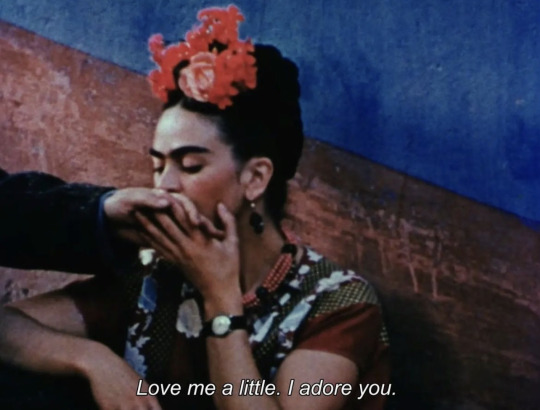
Frida Kahlo & Tina Modotti (1984)
34 notes
·
View notes
Text
erasing meaning from gangnam style
Since we’re an Asian-interest magazine, I’m going to assume that you know what K-pop is, if you aren’t vaguely familiar with it. Living through the 2000s has been a very exciting time for Korean identities in the mainstream. One could sense the time dependence of my identity in the US; in elementary school, I mostly interfaced with the American joke wondering if I had come from the North or South, which failed to consider that all of my grandparents had come from the North, and would never see their family or friends again due to US intervention. But by high school, my fortunes had turned around! At this point, we were being accosted in Marshalls by well-meaning parents who wanted to ask us about BTS because their daughter looooved K-pop, which raised another question: how did they know we were Korean in a primarily Chinese community?
But regardless of my personal bitterness, it’s important (to me) to consider how this happened. And it was a gradual change, to some extent, but really a large paradigm shift happened to change the visibility of the Korean identity in the US, around when I was in 6th grade. K-pop at this point had been what my other Korean friend and I watched on old YouTube during playdates for her to fangirl over, and for me to vaguely stare off into. It’s not like K-pop hadn’t had any international success, but it felt limited to the Korean-American diaspora and niche internet communities. “Gee” by Girls Generation is a song I would like to argue really first crossed the border into mainstream success, but I think that’s wishful thinking for an iconic song I happen to like (seriously, go watch it).
I don’t think it would be a controversial statement to say that “Gangnam Style'' was a really big deal. Statistically speaking, it topped iTunes charts in 31 different countries, it was the first video with a billion views, and it’s still the 11th most watched video on YouTube. But I’m sure just mentioning it brought you back to whatever you were doing while I was arguing about how stupid Harry Styles and Call of Duty were (I wasn’t a particularly critical-thinking middle schooler). Gangnam style was all over the radio, blessing my 7 a.m. rides to school in my mom’s Corolla, and I’d climb back onto my main after-school activity of the desktop computer to see the thumbnail on YouTube before clicking away and watching two very large buff men put together a mega burger made out of bacon instead.
Not that I had a global perspective of things at the time, but what was interesting about the virality of “Gangnam Style” is that it seemed to originate from completely different reasons across the US and its original target audience in Korea. I sensed this as one does through the American cultural hegemony, another middle schooler friend, who confided to me that it was great that Korea would be seen in such a positive light thanks to “Gangnam Style”. I wasn’t sure. I felt a little uneasy knowing that my cultural diplomat was PSY freaking out over a lady’s ass.
“It’s awesome,” the guy who oversaw our after-school pick-up told me.
“Did you know,” I said, pausing my round of Touhou 7 that I would bring in on a USB, “that it’s actually about capitalist critique?” I had learned this after Googling the lyrics because it felt a little rude to not know what a song in my own language meant. I wasn’t 100% sure what that meant, either, but they were words I knew went together according to Tumblr.
The entire video, really, made me a little nervous. Who was I in the eyes of others at school? PSY? Who even was he?
I didn’t really want to be associated with this goofy Korean man who wasn’t very handsome. I wanted to be taken seriously.
We can chalk this up to the nervous identity crisis and desire for acceptance of any middle schooler, but this difference in understanding “Gangnam Style” wasn’t just personal, but a symptom of cultural differences. Not just cultural differences, but a refusal to translate or understand the spectacle of Korean messaging in the US. We can look at this with post-feminist theory as well as the pervasive use of ironic justification in the 2000s-2010s.
Background history
In Korea, PSY was already known for being a runaway success, starting as an underground artist who began to produce hit after hit, starting in 2001 with the success of his first full-length album because of his non-traditional styling (compared to the extremely polished and conventionally attractive looks of K-pop groups), use of comedic lyrics, as well as vulgar lyrics criticizing Korean society. So “Gangnam Style” wasn’t a far departure from that.
The lyrics of “Gangnam Style” feature a guy who describes himself as “macho” and wants a girl who “looks quiet but parties hard when she goes to party,” or is “sexier covered up than a girl who is scantily dressed.” This narrator’s thoughts lean into the post-feminist sexism of the idea of a “girl who isn’t like other girls,” but PSY openly mocks the narrator’s preferences through the narrator’s parallel ideas on his own looks and perceived attractive features. This narrator brags that he also “can get crazy passionate” and “has bulging brains instead of bulging muscles.” While not necessarily as applicable in the Korean feminist scene during this time period, in the US this can be understood as the attempt to validate “alternative masculinities” that are not based on the traditions of physical power, but instead “intelligence” that became popular in the 2000s and 2010s.
The hook, “Oppa Gangnam style,” can be understood as the narrator calling himself a cool guy from the Gangnam district, which can be thought of as posturing that you’re from a rich, high-culture district. The classical comparison is to Beverly Hills, but you can also think of people who brag about going to Harvard, being snotty about New York City, or so on. It mocks the idea of constructed masculinity through materialistic attempts at class mobility with commercial goods (the Mercedes car) and images of lifestyle (lounging at a “beach,” going to high-end spas) by showing these as tasteless, corny, and crass. “Gangnam Style” critiques the materialistic culture of Korean youths, who aspire to come off as rich and upper class through elegance and “taste.” But PSY lampoons this through an overtly corny music video that claims that he is portraying these “elegant” people who ultimately are chasing after masculine ideals of being considered attractive and meeting women who are feminine ideals in aesthetics. These men treat women like objects because they believe that they can achieve their masculinity through materialism and class.
But how many Americans know that “Gangnam Style” is a satirical critique of Korean materialism?
At the risk of being unfair, my two examples certainly didn’t know. Most other K-pop music videos have English captions, including the videos that were released before “Gangnam Style” caused a huge growth in interest in the genre. But “Gangnam Style,” 10 years after it’s been released, still has no translations on the video itself. Which seems strange since so much of the music video is guided by the lyrics. If the lyrics are lost on the American audience, where does the international appeal come from?
International Appeal
The answer is that the themes behind the lyrics were never part of the appeal. Most of the appeal comes from the music video. T-Pain tweeted, “words cannot even describe how amazing this video is...”, which is directly linked to the skyrocketing popularity of the video as news sites began to cover it. So the virality of “Gangnam Style” in the US must be studied through the lens of pleasure removed almost completely from the lyrics. Taking the music video at face value, then, we can get a different reading using post-feminist themes of irony, the choice of objectification, masculinities, as well as the construction of the consumer through advertising and sexuality.
The positive response to “Gangnam Style” has generally been attributed to the absurdist nature of the scenes in the video, as well as the dance itself. The Washington Post claimed that “'Gangnam Style' has made an extraordinarily stupid-looking dance move suddenly cool,” ignoring the fact that the dance was chosen to look stupid in the first place.
The Sydney Morning Herald claimed that the video “makes no sense at all to most Western eyes" and it "makes you wonder if you have accidentally taken someone else's medication."
The deliberate removal of meaning from the video is reminiscent of Adorno’s concept of the culture industry. The video loses the power of “psychology” over the “structure” of the music video. The Western viewers thus avoid the confrontation of culture in the music video by brushing the visual themes aside as “meaningless.” So it becomes “uncritical fun” and viewers can thus transcend the need to even know the lyrics. There is a racial aspect to this as well—the Korean-focused message is brushed aside since it “makes no sense at all” to a Westerner. So the minority Korean message is subjugated and destroyed, made invisible by mocking the silly Asian man doing his silly dance. In this way it becomes pleasurable to an audience that may otherwise be alienated by its themes.
Another way “Gangnam Style'' is understood in the US is through sexuality, as advertisements and other video forms have already created this sexualized “set of images.” It is likened to LMFAO, probably in reference to “Sexy and I Know It” for their satire of the grandstanding of masculinity. But LMFAO creates satire through the focus on male genitalia and body humor. The comparison of “Sexy and I Know It” can be understood by “Gangnam Style'' being seen as a video about a satire on male sexuality instead of consumerism, with American viewers focusing on the nudity and Noh Hongchul’s pelvic-thrusting dance. The latter dance is actually a trademark of Noh Hongchul’s comedy acts, but the American audience doesn’t know this, and thus interprets it in the language of images they are familiar with. As Sut Jhally puts it in “Advertising, Gender and Sex: What’s Wrong with a Little Objectification?”, the viewers are informed through the “system of images'' that are present in American society, and also happen to be obsessed with “gender and sexuality.” The one English lyric in the song is “Hey, sexy lady”—which adds to this perception and leads to a later ironic reading of other scenes where women are sexualized.
So of course there is no closed captioning—PSY understands the appeal for American audiences includes taking the lyrics as nonsensical and meaningless.
Another distinctly American reading occurs for the objectification of women, notably the yoga lady image that became the icon of “Gangnam Style.” With the context of the lyrics, it’s clear that this is a direct critique of the sleazy nature that comes from commodifying women. The women present in the music video are also traditionally beautiful, with the woman who seems to be interested in PSY in the music video being an idol herself. Without the context of the lyrics that deconstruct the delusion of a romantic, classy lifestyle where women only have value from being traditionally beautiful, however, this scene is transformed into the post-feminist “irony” that Rosalind Gill talks about in her paper “Postfeminist Media Culture.” American viewers thus participate in the sexualization of these women by the constructed “silliness” of the music video. By making “Gangnam Style” absurdist and bereft of meaning, PSY’s yoga lady scene is seen as “funny” and “subversive” towards sexism, even though the original critique is on materialism and commodification.
The real absurdity is the American response to “Gangnam Style” as a force to “understand Korea” in the US by Obama, and even as a way to hail world peace by the UN.
Even Noam Chomsky was part of an MIT parody of “Gangnam Style,” partaking in “mindless fun.” I felt a little disturbed at the time that this might be the image of Korea constructed for the American mind as actual interest in the culture was swept away by the exaltation of the video as nonsensical and meaningless. As a 6th grader, this wasn’t how I framed it to myself, but the way the Western viewpoint became dominant over the original meanings of the video signaled to me that my Korean experience would become destroyed and overwritten by the white, American viewpoint. The post-feminist mindset also created a post-racial mindset where irony was used to mock other cultures, setting a white gaze in media much like the male gaze asserted by Laura Mulvey in “Visual Pleasure and Narrative Cinema.” That’s why so many TV shows were able to partake in blackface (like The Office and 30 Rock, just to name a few) and take pleasure in unashamed racial violence—to the white gaze, it is funny, because the original meaning of racial violence can be stripped away.
References
Gill, Rosalind. “Postfeminist Sexual Culture.” The Routledge Companion to Media & Gender, https://doi.org/10.4324/9780203066911.ch54.
Horkheimer, Max, et al. Dialectic of Enlightenment. Stanford University Press, 2020.
Jhally, Sut. “Advertising, Gender and Sex: What's Wrong with a Little Objectification?” (1989).
Mulvey, Laura. Visual Pleasure and Narrative Cinema. 1999.
14 notes
·
View notes
Text
Laura mulvey-allen jones
3 notes
·
View notes
Text
Voyeurism vs. Provocation: The Gaze in The Patriot
In my copious reading/video watching about The Patriot I've found very little interpretation focused on sexuality. Perhaps this should be unsurprising since the only characters who definitely have sex are Benjamin Martin and Charlotte Selton, as evidenced by the baby in her arms in the film's final scene. When commentors do address it, focus tends to be on the male gaze; the camera lingers on Charlotte's decolettage in times of danger and romance alike. It is hard to imagine a character who more fully exudes, to use Laura Mulvey's words in "Visual Pleasure and Narrative Cinema" (1975), "to be looked at ness." Apart from getting the Martin children to safety in a dragoon attack (which, to be fair, is more than their father could do!) that is her main purpose in this story. This is to be expected given the film's cardboard flat representation of women generally. but what is surprising is the insistence of some commentors that William Tavington's bare chest in the famed river scene serves the same purpose, only for a specifically female audience.
According to Mulvey, "Traditionally, the woman displayed has functioned on two levels: as erotic object for the characters within the screen story, and as erotic object for the spectators in the auditorium, with a shifting attention between the looks on either side of the screen" (2013 reprint in Feminism and Film Theory). All of this applies to Charlotte. Though Ben Martin can barely be bothered to glance her way early on, he has no problem allowing her to care for his current children and bear him future ones. Indeed, given that their first and only kiss happens after caring for his children costs her a plantation, the second appears to be a reward for the first. Lucky woman :/
The costume Charlotte wears after this encounter is her most revealing of all: her arms as well as her chest left bare. Now that the hero has deemed her worth looking at, the audience also gets a greater share of the bounty he has uncovered for us. Tavington, meanwhile, gets dressed down several times, but no one undresses him but himself.
Tavington is a significantly more active figure in the story, and he only appears thus improperly dressed here and the deleted scene in the DVD bonus features/extended cut when he advances on General Cornwallis, urging him not to withhold his reward (ok, whore). Not only are women notably absent from both of these scenes, but Tavington has no interaction with women in the film whatsoever. Anna shouts at him in the church he is about to burn, and he ignores her. Two women appear in the foreground when he shoots back champagne after the militia-engineered ship explosion, but it is as likely that they all wanted drinks at the same time as that they were engaged in conversation. The best opportunity for Tavington to engage with a woman is his surprise visit to Charlotte's plantation, but instead that honor goes to Martin's son, Nathan.
Not only is Tavington uninterested in women, and they in him for all we see, the film's female characters exist to do one of two things: have and/or care for men's babies or die for their motivation. But the filmmakers are getting the main villain out of his clothes exclusively to provide eye candy "for the ladies" . . . sure.
It is a little disorienting when he emerges from having washed the smoke out of his hair in the river like Venus rising from the sea. Every other British soldier is dressed to regulation in every scene (apart from one blink and you miss it glimpse of dragoons dining in their tent with their jackets off . . . ohh, scandalous!). Tavington, with his shirt open to the sternum and only his jacket over it, looks positively obscene in comparison. None of this was lost on the film's gay director, Roland Emmerich, who made the absolute most of it. But let's assume, just for a moment, that this wanton spectacle actually has some relevance to the plot and reveals something about this character.
This is the final scene of what I call the film's Golden Hour (you do not have to tell me it is significantly less than an hour!) that takes us from the prisoner exchange to Gabriel's death. These scenes also reveal a new strategy on Tavington's part. Up until this point, he has been bent on killing as many rebel soldiers and making examples of as many of their supporters as possible. Once he recognizes Martin, though, his tactic shifts from executing men to provoking attack by men.
Gloating about killing Martin's son: provocation
Targeting militia men's families: provocation
Collapsing with his back to his assailant and his ass in the air: provocation
Initially, Tavington appears to get more than he bargained for in the river scene. He seems to be caught unaware, at a distance from his weapons, vulnerable to attack. If he is, he gets over it quickly, running to arm himself while his men fight and casually dispatching the attacking rebels who get past them. Gabriel is able to wound Tavington not by outfighting him but because Tavinton's latest victim throws him a loaded musket before falling down dead. Handy.
Tavington puts himself in an extremely vulnerable position. Not only is his back to Gabriel, but he lying prone, which means he needs even greater speed and agility to flip over and stab Gabriel than Gabriel's father will need, while kneeling, to avenge him later. And it will be all for naught if Gabriel reloads and shoots him again like a sensible person. But he is not thinking sensibly; it is called bloodlust for a reason. Tavington is banking not only on his backside proving too tempting a target to resist but on Gabriel's desire to stick his weapon into him at close range. Even the roar Gabriel lets out as he raises his knife aids in Tavington's aims.
Bathing after burning someone's house down is a risk too, especially so soon after taking out several militia men's families in one swoop, but it is one Tavington is willing to take. Perhaps the way he looks is "for" someone here, but it is someone he is expecting, and it is not the Loyalist Ladies Sewing Society. He already knows Martin prefers to have the advantage of surprise when he attacks, so surprised is what he'll be.
Martin, however, is not only less susceptible to this tactic than his son, but he employs it himself. For a moment, it looks as though Tavington's goading in front of the fort is going to work, but once he is so close that only Tavington can hear him . . .
"Before this war is over I am going to kill you."
Tavington, without missing a beat: "Why wait?"
Martin, considering, looking Tavington over sultrily as he does so: "Soon."
(Ok, whore)
Tavington is skilled at using other men's dark desires to his advantage, but he is the subject of such desires too, and this proves to be his downfall. Martin's tactic of provoking a British attack works not because Cornwallis holds the militia in contempt but because he fears Tavington will steal his glory. Tavington charges into battle ahead of his men because he wants Martin.
Desire is not in short supply in The Patriot; it just mostly exists between men. The river scene provides perhaps the best example of this. Tavington is not like Charlotte, or the heroines Mulvey describes as passive objects of a controlling, sexualizing gaze. He knows what he's about. That does not mean women should not be tantalized by him--that would be ridiculous. But there is a big difference between enjoying something and believing it exists solely for the purpose of your enjoyment.
#the patriot#william tavington#jason isaacs#laura mulvey#the male gaze#charlotte selton#gabriel martin#benjamin martin
33 notes
·
View notes
Text
"I do NOT understand the guys who want to watch Orcs hitting each other with hammers! *I* want to watch a scantily clad woman absolutely annihilate a dragon while blood runs down her tits. WHY do people consider that WOKE?!"
#my himbo boyfriend#himbo#himbo quotes#stoner thoughts#video games#bechdel test#male gaze#laura mulvey#got the spirit
0 notes
Text
youtube
In today’s “What Is…?” I’ll be explaining the concept of the male and female gaze in visual (aka TV show and film) media. I’ll be using Laura Mulvey’s 1975 essay “Visual Pleasure and Narrative Cinema” to explain what the male gaze is, as well as using that same essay and an old essay of mine to explain the female gaze, and what it might be lacking/not considering if discussing the female gaze as the opposite of everything Mulvey wrote. I hope you find this video informative, and feel free to share it to any of your friends who might need help understanding these concepts!
#male gaze#studyblr#academia#video essay#youtube#youtube video#laura mulvey#film theory#english theory#my videos.#shameless self promo <3#Youtube
0 notes
Text
Laura Mulvey On Chantal Ackerman — when her mom died :
“I have a home in Paris. I have a home in New York. But whenever I say I’m going home, I mean I’m going home to my mother. Im going home to Brussels. Now when I go there, there is no home there.” Chantal Ackerman from the podcast Laura Mulvey on Chantal Ackerman
0 notes
Text
In Conversation With Laura Mulvey (Interview)
youtube
1 note
·
View note
Note
First, HERE is a link to the essay by Mulvey about the male gaze. It's a PDF.
So in a reblog of the first post in this thread of reblogs (HERE ), a user brings up arguments against the existence or prevalence/seriousness of the male gaze in media and I quickly disputed against the user trying to shoot it down. I didn't counterargue their specific points as I wasn't in the frame of mind for it, but here are some other things.
The male gaze rather is the definer/precursor to the need to pay attention to how stories created by men, etc., tend to not be able to NOT ONLY provide nuanced female characters but not be able to provide them without debasing or criticizing them for not conforming to already built models of patriarchally- approved submission of body, mind, etc. to male desire. Not only sexual desire but the desire to control and shape itself.
This all being said, male dominance and evaluation of what is worth putting on screen and to be consumed by audiences continues to exist, as through the example I gave in that post, of Sam Levinson and The Idol. Woman-as-Image, rather than the Bearer of Look, is not far behind such dominance.
And are men actually willing to hand over that control without it somehow going back to them controlling how women are depicted in projects? What things are centered, and how?
The user said:
A) "To shorten it briefly, Male Gaze is not synonymous to Misogynistic/Gendered Violence. That is a fundamental misunderstanding of the term. It refers to the othering of the female subject and is more aligned with the lenses of erotic framing and pleasure. It places the audience literally in the gaze of the man, who is usually the protagonist, and forces the female character to be an object of the protagonist’s erotic viewing. This is Freud’s Id in work. Male desire at work. Therefore, the female becomes objectified, othered. Male gaze is hinged on the voyeur aspect of cinema."
Except I, xenonwitch, lelecore of Twitter, nor Mulvey were ever saying that gender violence = male gaze nor that it is the only/prime thing that indicates male gaze in today's film and media.
I would say that when Mulvey introduces the word "castration" to define a woman's role and identity in the "patriarchal unconscious", she was very clear that there is something violent happening within the patriarchal/male supremacist system of film-and-spectacle in American/British media. "Castration" indicates that in the symbolic system (again, within at least American/EU patriarchal media), therefore is an inherently violent one, a political order based in taking/draining from one to give to another
Which then defines and shapes male desire itself to be about taking and reducing, therefore destroying, female presence/personhood/nuance.
Or using it for the male identity and character development.

With emphasis on "her lack" that creates the "phallus":

And this where Mulvey ties it to patriarchy and Freud, in the beginning, anyway:

Mulvey was absolutely talking about the patriarchal film and perspective creating/reducing the women, or rather "female" to justify the male presence. For women, to be reduced, is only to create "man", and her sole purpose is to create "man".
From the get-go, Mulvey is working from an analysis of media through a FEMINIST lens and identifies the media analyzed as inherently misogynist/patriarchal. As a thing that is patriarchally "oppressive" FOR WOMEN, and not just "the lenses of erotic framing and pleasure":

Mulvey looks at how that pleasure for men is constructed!
It looks, rather, at how that erotic framing and pleasure is framed and what inspires it, but it maintains that the eroticism itself is not a natural thing, but constructed in "language":

The language of narration itself
Not English vs Russian "language". I mean what particular images, patterns of behavior, tropes, colors, even, etc. do filmmakers use (who also know the cultural significance of such phenomena and what people they wish to create this media for, therefore what convention of practice and idea those people already have and how to appeal/play with to those) to convey meaning. These are the building blocks of media language itself.
B) "However, the minute you diverge from framing a scene from the male’s perspective and rather the female’s perspective it no longer becomes male gaze. Once, we interact with the Elements of personality stated by Freud: Ego, it no longer becomes erotic— and no longer male gaze."
Mulvey directly criticizes both Freud and the Freudian scopopholic pleasure-power principle AS WELL AS film power fantasy making as trying to deny the realities that form it and inform it in the first place:


C)
"Alicent’s rape scene is framed by the perspective of Alicent, not Viserys. We also stay focused on her face and not Viserys. So this is how we can infer that the Ego and possibly superego is in place. Ego Id which is ego guiding Id."
1.
It is not enough to shift the perspective from male to female to remove the overall dominance of male power of narrative control and production in Hollywood and elsewhere.
Perspective, by itself, is not enough to explain the story following the conventional patriarchal tropes and lack of focus on the female character's feelings and actions, and reactions to principal events even happening to them or being decided for them. It is not just about the perspective of the character, but how you, the writer, created your female vs male characters and how/who the entire story tends to follow or narrate. How you, the director, directed your actors, and what you, the editors, and producers decided which scene gets cut, and redone for what reason? Which then determines the shift in perspective and how the characters'/camera's views affect and shift our concerns from the women to the men.
In HotD, we mainly follow Daemon, Otto, and Viserys' emotional journeys when we could watch how Laena, for example, reacts to her marriage arrangement to Viserys before she is ever told how to speak to him. Follow her journey to Vhagar SEPARATE from any other man in her vicinity, her way of thinking, and her personality apart from being a mother, wife, and daughter.
2.
The reason why Mulvey uses Freud's work of psychoanalysis is that Freud's id/ego/superego is, and has always been, recognized as the theory which is most concerned with masculinization and de-masculinization (which, in his and a large part of our current society, are perceived as also empowering/disempowering; power = male/phallus) through female-male relationships.
From Jaques Lacan (who framed his own theories based off of how Freud made his from ideas of the pleasure of "looking at another person as an object" -- pg 806), those ways in which we, as humans, form a sense of self and the powers of the self. How we recognize ourselves and what we dream of being/becoming.
Specifically, those relationships that Freud defines as the woman being the multi-formed "caretaker" (mother) and material of the man (that which forms from the woman, and thus her "child") to be herself more a symbol of man's meaning than an actual actor and autonomous creator of any sort of meaning for audience or society:

When Mulvey points this out, she was saying that this construction of "male desire" itself is a construction that works to naturalize the construction of male-desire-based-on-dehumanizing-women.
The male gaze, as written by Mulvey, is about the narrative framing and characterization of women in media that ultimately subject the woman to be more of an object and function rather than a realized person on par with their male counterparts. The depiction may or may not be physically violent, but the process and purpose are inherently violent because it destroys the nuances of women/girls or prevents them from existing in the first place.
It is not meant to be taken as if a male character is beating a female character, like when Daemon chokes out Rhaenyra in episode 10, is all it takes to identify misogyny. Misogyny is also how the story is geared to centering the man's reactions or actions and creating empathy for them more so than most of women.
Putting an emotionally or physically intimate male-female interaction of any kind in the woman's POV is only a quarter (an arbitrary designated number to connote breadth) of work done to actually give the girl/woman some agency and prominence within the spectacle of the interaction itself.
If you could rewrite Show Alicent, how will you portray her?
*ADDITIONAL NOTE* -> I put more thought into this question in this post, where I gave a YouTube comment. If I had to deviate from sweetestpopcrorn's fanfic Alicent.
The Dance is about how a woman is usurped because a group within her family decided to take power for themselves and use her gender's sociopolitical value and her actions flouting her restrictions against her. The Dance is about misogyny against Rhaenyra -- she is the protagonist.
I would show Alicent talk against Rhaenyra to her kids behind closed doors, make snide comments about Rhaenyra's habits and superficial presentation (hair and dress), have her be more like how she is in episode 6 and 7 where she was all gungho against Rhaenyra. Have her call Rhaenyra all sorts of misogynist terms and imply such.
She would never be “friends” with Rhaenyra, since this ship makes no sense at all even on screen (and some of this POST). She also is not Rhaenyra’s age (like in canon). She retains her 9-year seniority so that her turning against 10-year old Rhaenyra gives way to a picture of her emotionally isolating Rhaenyra every chance she gets.
I would bring up her past with Jaehaerys I when she was comforting him in his last days, have her 15-year old self hear him speak of Saera and develop ideas of only doing what Jaehaerys would have wanted. Have this be a strong point of pride and self justification against Rhaenyra.
Basically, just make Alicent like the Alicent of @sweetestpopcorn’s A03 fanfic The Blacks and the Greens. That is the most believeable/closest to canon Alicent that I have ever read.
(The Jaehaerys part came from me, though....I think).
#hotd male gaze#feminism#laura mulvey#male gaze#asoiaf#hotd#hotd comment#house of the dragon#a song of ice and fire
174 notes
·
View notes